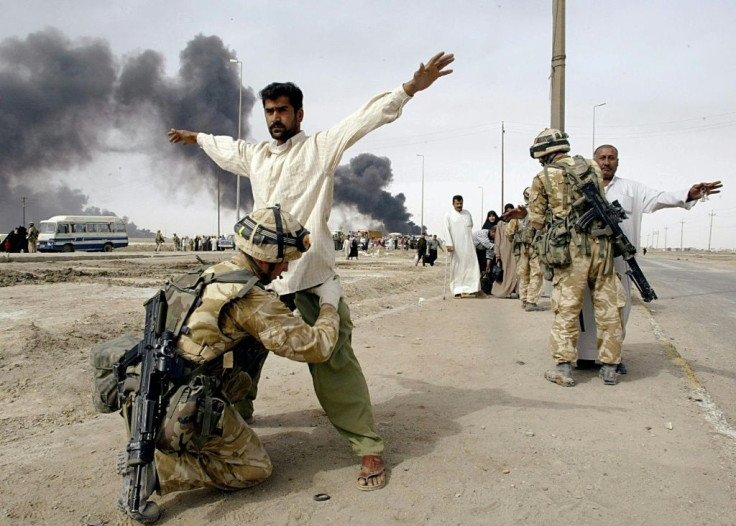ICC Drops Probe Into British War Crimes In Iraq
The International Criminal Court's chief prosecutor announced Wednesday she was shutting down a preliminary probe into alleged war crimes committed by British soldiers after the US-led invasion in Iraq.
Fatou Bensouda's announcement comes after a "rigorous" six-year long investigation into the conduct of British military personnel, particularly into the treatment of Iraqi prisoners in detention.
The prosecutor based, in The Hague, had said in 2017 there was "reasonable basis" to believe British soldiers did commit war crimes. On Wednesday however, she said she could not find any evidence that Britain had shielded suspects from prosecution before British courts.
"Having exhausted reasonable lines of enquiry arising from the information available, I therefore determined that the only professionally appropriate decision at this stage is to close the preliminary examination," Bensouda said in a statement.
As a result the court will not proceed to a full ICC investigation.
Set up in 2002 as the only independent court to prosecute the world's worst crimes, the ICC is a "court of last resort", getting involved only if its member countries are unwilling or unable to prosecute suspects.
In June, an independent British investigator looking into allegations that UK soldiers committed war crimes in Iraq between 2003 and 2009 said all but one of the thousands of complaints had been dropped.
Bensouda did criticise an initial British response to the allegations as inadequate, weakened "by a lack of a genuine effort to carry out relevant investigations independently or impartially".
She acknowledged that the British authorities had subsequently made efforts to properly probe abuses, but complained that not a single case had been prosecuted after a decade-long investigation, "depriving victims of justice".
Her office also "identified numerous concerns with respect to how specific decisions on certain matters were arrived at" during Britain's domestic probe.
"The ICC, however, is not a human rights body called upon to decide whether in domestic proceedings the requirements of human rights law or domestic law have been violated," Bensouda said.

"Instead, it is tasked with determining whether it should exercise its own competence in a criminal case, in place of a state."
In this case the ICC would get involved only if it believed there was no genuine attempt to bring suspects to justice.
After a detailed inquiry, Bensouda said her office "could not substantiate allegations that the UK investigative and prosecutorial bodies had engaged in shielding, based on a careful scrutiny of the information before it".
Human Rights Watch however lamented the decision, saying the British government "has repeatedly shown precious little interest in investigating and prosecuting atrocities committed abroad by British troops."
"The prosecutor's decision to close her UK inquiry will doubtless fuel perceptions of an ugly double standard in justice: one approach to powerful states and quite another for those with less clout," said Clive Baldwin, a senior legal adviser with the group.
The world war crimes court is also involved in probing possible war crimes committed by US and other forces in nearby Afghanistan.
The United States has always refused to recognise the ICC's authority, and a move to go ahead with that investigation earlier this year provoked anger in Washington.
US President Donald Trump then took the unprecedented step of ordering sanctions against Bensouda and another senior court official.
jhe/jj
© Copyright AFP 2024. All rights reserved.





















